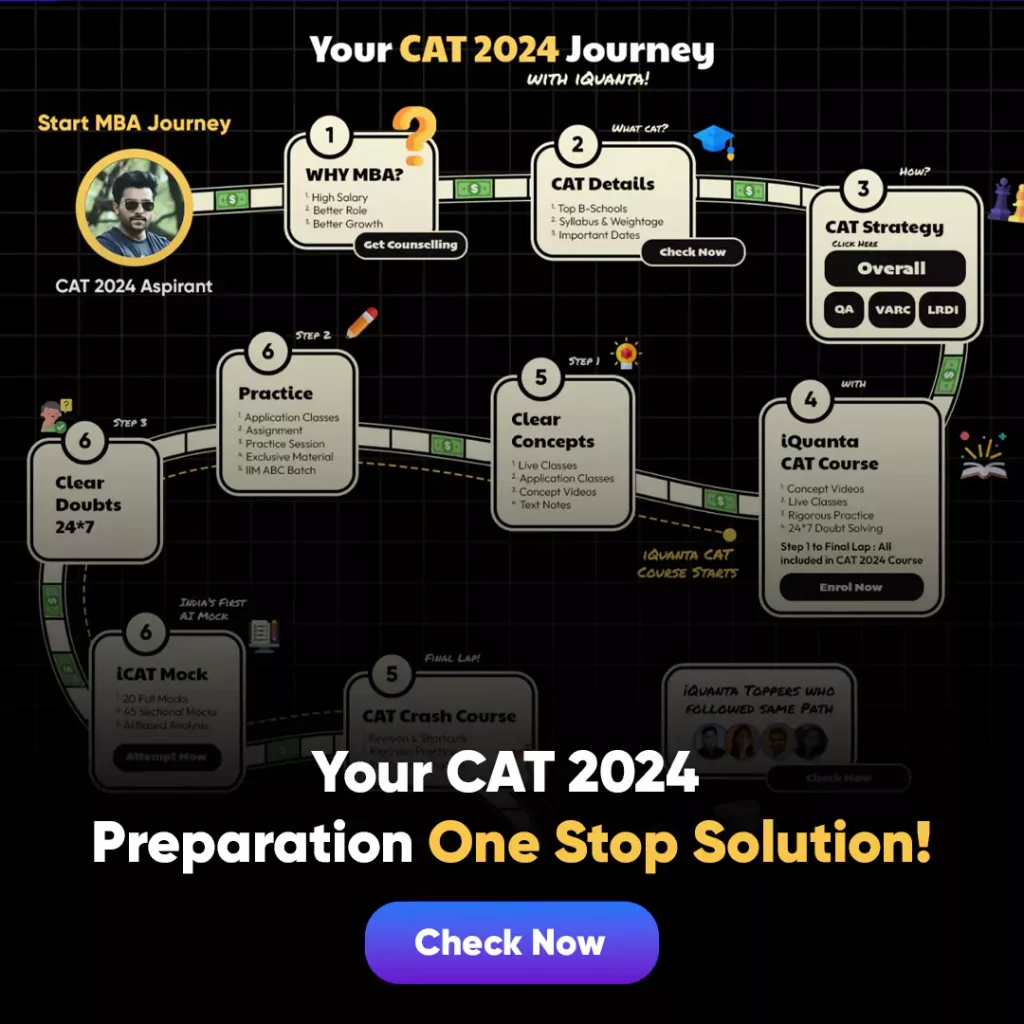When we try to imagine a Non-engineer preparing for the CAT Exam, all we can picture is a candidate struggling with the Quantitative Section of the Exam. While this might not be true for all, but is the general perception among people. The perception is based on the logic that Non-engineering Candidates have lost touch with mathematics, back in the school days. Hence it is not expected of them to be well-versed in the fundamentals of Mathematics. On the other hand, when it comes to the Verbal Ability section, it has been observed that CAT aspirants from non-engineering backgrounds do not face any major issues. It has been observed that candidates tend to ignore the section in which they struggle, for Non-engineers that section is generally Quants, which is not just simply based on formulas, it rather tests your Calculation and logical abilities. In this article, we aim to deliver a foolproof preparation strategy, that a Non-Engineering Candidate should follow to ace CAT 2024.

Key Preparation Strategies for Non-Engineers:
1) The first step should be Overcoming Quant Anxiety.
As a non-engineer, the thought of tackling the Quantitative Aptitude (Quant) section of the Common Admission Test (CAT) can be daunting. The perception that Quant is the domain of engineers can discourage many aspiring business leaders from even attempting the exam. However, one should know that with the right strategy and a systematic approach, non-engineers can not only overcome their Quant fears but also excel in this crucial section of the CAT Exam. It is essential to cultivate a positive and resilient mindset throughout your CAT preparation journey. Quantitative Ability is a skill that can be developed with consistent effort. Initially, non-engineering Candidates must avoid the trap of comparing themselves to their peers from engineering backgrounds. One should embrace the challenge, and trust in your ability to ace the Quantitative Aptitude.
2) Prioritize Arithmetic!
The key to conquering the Quant section lies in mastering the fundamentals of arithmetic. This foundational knowledge forms the backbone of the majority of Quant questions in the CAT. By focusing on topics such as percentages, profit and loss, simple and compound interest, averages, linear equations, speed-time-distance, and ratio-proportion-mixture, you can build a solid Quant base that will serve you well in the LRDI section as well. Though other topics like Algebra and Geometry also have a significant Weightage in the Quant section, still it is advised to master Arithmetic in the initial days of your preparation, as it would help you grasp other topics more conveniently.
The beauty of this approach is that it not only simplifies the Quant section but also provides a clear path to achieving a high percentile. As observed from past year’s papers, approximately 50% of the Quant questions in the CAT are derived from these arithmetic topics. By getting these questions right, you can potentially score in the 93rd or 94th percentile, even without delving into the more complex Quant concepts.
Note: It does not mean, that you should ignore other important topics, as CAT is an unpredictable exam after all.
3) Systematic and Consistent Preparation.
As we discussed earlier, one should start by thoroughly understanding and practising the arithmetic topics, and ensure that you can confidently solve a wide range of questions within these domains, from basic to advanced levels. Once you have a firm grasp of the fundamentals, you can gradually expand your Quant repertoire by exploring other topics, such as geometry, algebra, number theory, and probability.
Consistency is key in this process. Dedicate a significant portion of your study time to practising Quant questions, gradually increasing the difficulty level as you progress. This will not only solidify your understanding but also build the necessary speed and accuracy required for the CAT exam.
4) Leverage Online Resources.
In today’s digital age, there is an abundance of online resources available to support your CAT preparation. Aspirants may explore platforms like iQuanta, which not only offer comprehensive CAT coaching but also provide 24/7 doubt-solving. Their CAT course can provide you with a structured approach, CAT-level Practice Material, and expert guidance to help you navigate the Quant section with confidence.
Conclusion:
As a non-engineer, the Quant section of the CAT may seem like a daunting obstacle, but it is not an insurmountable one. By prioritizing the mastery of arithmetic fundamentals, following a systematic preparation plan, leveraging online resources, and maintaining a positive mindset, you can unlock your full potential and excel in the Quant section of the CAT exam.
What is Non-Engineer’s Quants Module And how does it help?

iQuanta Non-Engineer’s Module is the ultimate solution for students who have lost touch with Mathematics back in school or those who wish to freshen up their basic concepts. iQuanta has introduced Non-Engineers conceptual videos in the CAT 2024 Course, keeping in mind the increased difficulty of the CAT 2023 Quant section, which might be problematic for those who are weak in Math. One should make sure to cover these concepts before moving on to the advanced-level questions to strengthen your basics.
The Non-Engineer’s Quants Module consists of several conceptual videos that cover the absolute basics of mathematics from standard 6th to 10th.
Where to Prepare for CAT 2024?
If you are looking for structured CAT preparation along with 24*7 doubt-solving, you can rely on iQuanta’s CAT 2024 Course. Practice the most relevant CAT-level content with iQuanta.


